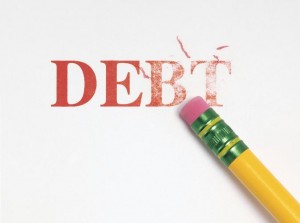 There is a lot of misunderstanding about when to file bankruptcy, who qualifies, and what must be done before filing. Some of this information, if followed, is truly harmful to potential bankruptcy debtors. In this article I try to dispel some of the most common bankruptcy myths I hear.
There is a lot of misunderstanding about when to file bankruptcy, who qualifies, and what must be done before filing. Some of this information, if followed, is truly harmful to potential bankruptcy debtors. In this article I try to dispel some of the most common bankruptcy myths I hear.
- Myth: You need to liquidate your retirement accounts to pay debt before filing bankruptcy. The most frustrating story I hear from my clients is that they tried to pay off their debt with funds from their 401k. Money in a 401k is exempt property, meaning that creditors cannot touch it. Debtors can file bankruptcy and the money in their 401k will be theirs to keep. Withdrawing money to pay off credit card debt rarely solves a person’s financial problems. Debtors have to pay taxes on the amount withdrawn. In some cases the retirement funds aren’t enough to pay off all the debt, so they end up in trouble again. Worst of all, taking that money out to pay off credit card debt prevents it from accruing interest in the future. Withdrawing $50,000 from a 401k earning 7% interest will cost the debtor $400,000 over the next thirty years.
- Myth: If you file bankruptcy you will never be able to borrow money or improve your credit. Most people that file bankruptcy find that their credit score improves by fifty to one hundred points the very first year after filing bankruptcy. It is not uncommon for debtors in Chapter 13 bankruptcy cases to buy houses or cars while they are in active bankruptcy cases, and debtors that receive a bankruptcy discharge report being flooded with offers credit cards soon after their bankruptcy cases closes. If anything debtors who receive a discharge are better able to borrow money than borrowers who have significant debt but have not filed bankruptcy.